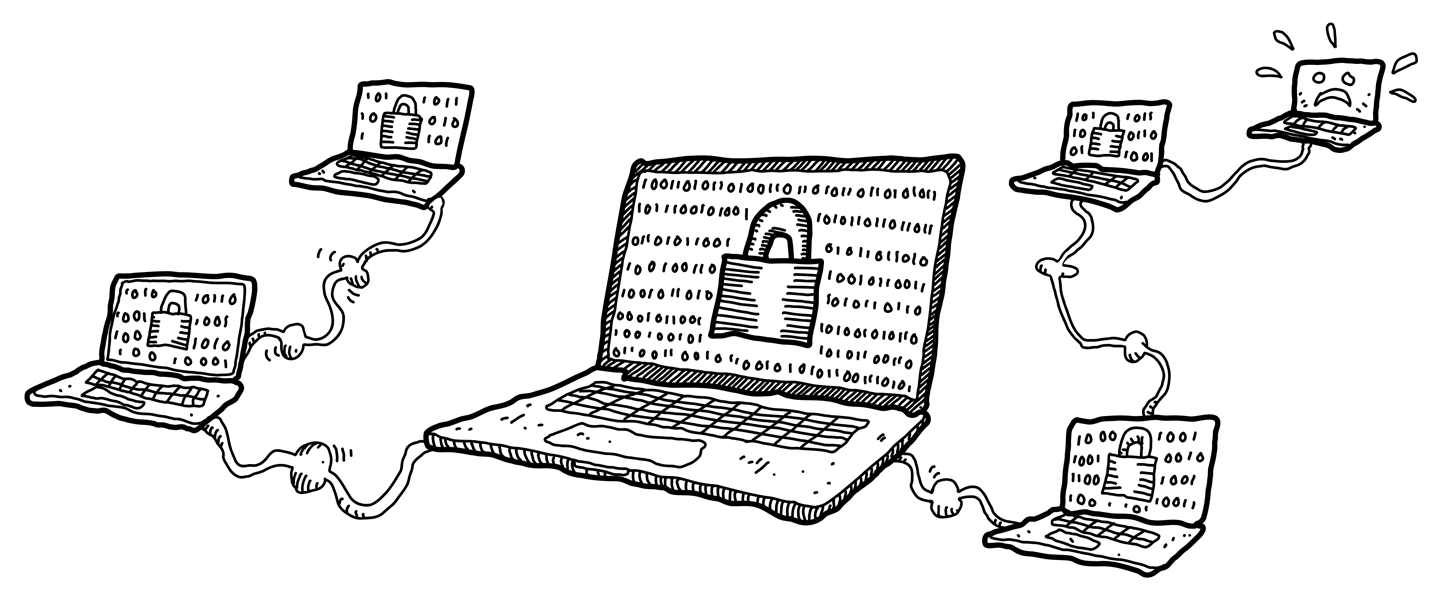In today's digital world, all organizations are vulnerable to cyberattacks. And Cyber crime is increasing. According to PWC, IT-related crimes are the second most reported crime globally. These attacks can have devastating consequences, both financially and for the organization's reputation. Therefore, it is important to have a strong strategy in place to protect against cyberattacks. One of the most important parts of this strategy is to educate staff about cybersecurity.
1. Be careful what you click on and download
Do not click on links or open attachments in emails or other messages from unknown senders. Do not download files from unknown websites either. Cybercriminals can use these methods to spread malware on your computer or device. 50% of all cyber incidents can be linked to human error. Make sure to educate your colleagues and users.
Make sure to educate yourself and your colleagues in cyber awareness. Read more about micro training & zero day classes here.
2. Use strong passwords and change them regularly
Do not use the same password for multiple accounts. Use strong passwords that are at least 12 characters long and contain a mix of upper and lowercase letters, numbers, and symbols. Change your passwords regularly, at least every three months. .
3. Be careful what you share online
Do not share personal information, such as your social security number or address, online. Also, be careful what you share on social media. Cybercriminals can use this information to steal your identity or commit other crimes.
4. Be careful what you click on and download on your mobile phone or tablet
Cyber Criminals are turning to phones and tablets. In 2023, the number of Smishing, or SMS-based IT-attacks increased by over 300%. Do not use the same apps or websites on your mobile phone or tablet that you use on your computer. Only download apps from trusted sources, such as the App Store or Google Play.
5. Report all suspicious activity
If you see something suspicious, such as a strange email or a malicious website, report it immediately to your IT department.
In addition to these 5 guidelines, it is also important to have a strong Security Awareness Policy in place. This policy should describe the procedures and practices that staff must follow to protect the organization's data. It is also important to regularly test your organization's cybersecurity to identify any weaknesses. Firewalls and other technical solutions can only get you so far. 50% of all cyber incidents can be linked to human error. Make sure to educate your colleagues and users.




